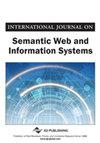Distributed Denial-of-Service (DDoS) Attacks and Defense Mechanisms in Various Web-Enabled Computing Platforms: Issues, Challenges, and Future Research Directions
IF 4.1
4区 计算机科学
Q2 COMPUTER SCIENCE, ARTIFICIAL INTELLIGENCE
International Journal on Semantic Web and Information Systems
Pub Date : 2022-01-01
DOI:10.4018/ijswis.297143
引用次数: 19
Abstract
The demand for Internet security has escalated in the last two decades because the rapid proliferation in the number of Internet users has presented attackers with new detrimental opportunities. One of the simple yet powerful attack, lurking around the Internet today, is the Distributed Denial-of-Service (DDoS) attack. The expeditious surge in the collaborative environments, like IoT, cloud computing and SDN, have provided attackers with countless new avenues to benefit from the distributed nature of DDoS attacks. The attackers protect their anonymity by infecting distributed devices and utilizing them to create a bot army to constitute a large-scale attack. Thus, the development of an effective as well as efficient DDoS defense mechanism becomes an immediate goal. In this exposition, we present a DDoS threat analysis along with a few novel ground-breaking defense mechanisms proposed by various researchers for numerous domains. Further, we talk about popular performance metrics that evaluate the defense schemes. In the end, we list prevalent DDoS attack tools and open challenges.各种网络计算平台中的分布式拒绝服务(DDoS)攻击和防御机制:问题、挑战和未来研究方向
在过去的二十年里,对互联网安全的需求已经升级,因为互联网用户数量的快速增长为攻击者提供了新的有害机会。分布式拒绝服务(DDoS)攻击是目前潜伏在互联网上的一种简单而强大的攻击。物联网、云计算和SDN等协作环境的迅速发展,为攻击者提供了无数从分布式DDoS攻击中获益的新途径。攻击者通过感染分布式设备来保护自己的匿名性,并利用它们创建一个机器人军队来构成大规模攻击。因此,开发一种高效的DDoS防御机制成为迫在眉睫的目标。在本次博览会中,我们将介绍DDoS威胁分析以及由不同研究人员针对众多领域提出的一些新颖的突破性防御机制。此外,我们还讨论了评估防御方案的流行性能指标。最后,我们列出了流行的DDoS攻击工具和开放的挑战。
本文章由计算机程序翻译,如有差异,请以英文原文为准。
求助全文
约1分钟内获得全文
求助全文
来源期刊
CiteScore
6.20
自引率
12.50%
发文量
51
审稿时长
20 months
期刊介绍:
The International Journal on Semantic Web and Information Systems (IJSWIS) promotes a knowledge transfer channel where academics, practitioners, and researchers can discuss, analyze, criticize, synthesize, communicate, elaborate, and simplify the more-than-promising technology of the semantic Web in the context of information systems. The journal aims to establish value-adding knowledge transfer and personal development channels in three distinctive areas: academia, industry, and government.

 求助内容:
求助内容: 应助结果提醒方式:
应助结果提醒方式:


